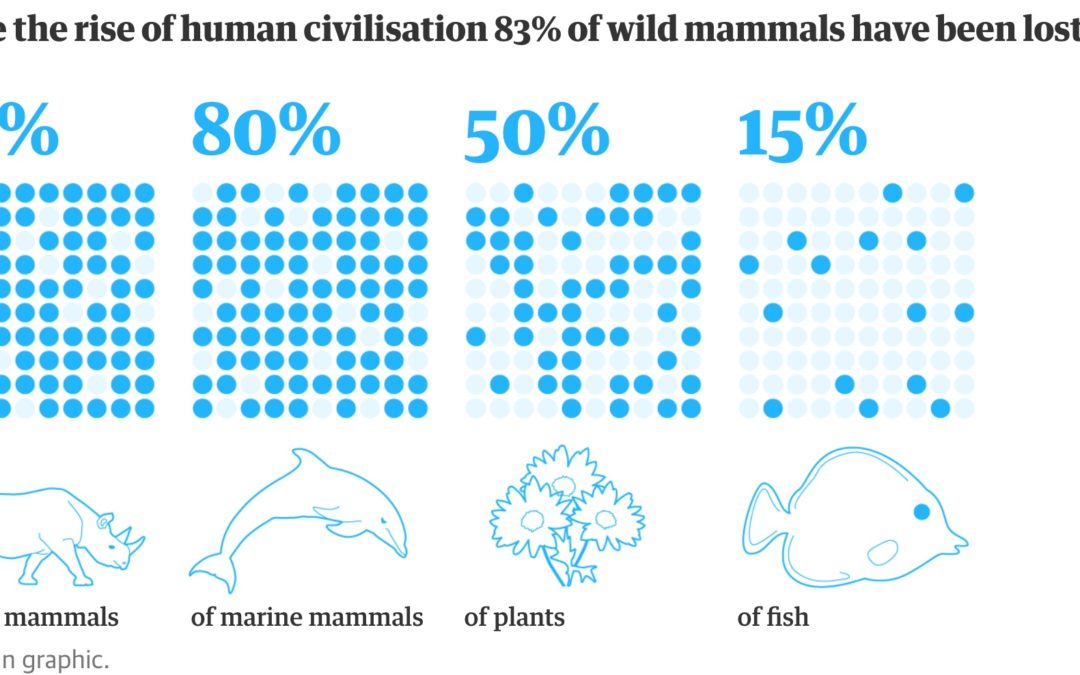SOURCE: The Guardian and National Academy of Sciences
DATE: May 21, 2018
SNIP: Humankind is revealed as simultaneously insignificant and utterly dominant in the grand scheme of life on Earth by a groundbreaking new assessment of all life on the planet.
The world’s 7.6 billion people represent just 0.01% of all living things, according to the study. Yet since the dawn of civilisation, humanity has caused the loss of 83% of all wild mammals and half of plants, while livestock kept by humans abounds.
The transformation of the planet by human activity has led scientists to the brink of declaring a new geological era – the Anthropocene. One suggested marker for this change are the bones of the domestic chicken, now ubiquitous across the globe.
The new work reveals that farmed poultry today makes up 70% of all birds on the planet, with just 30% being wild. The picture is even more stark for mammals – 60% of all mammals on Earth are livestock, mostly cattle and pigs, 36% are human and just 4% are wild animals.
[C]omparison of the new estimates with those for the time before humans became farmers and the industrial revolution began reveal the full extent of the huge decline. Just one-sixth of wild mammals, from mice to elephants, remain, surprising even the scientists. In the oceans, three centuries of whaling has left just a fifth of marine mammals in the oceans.


